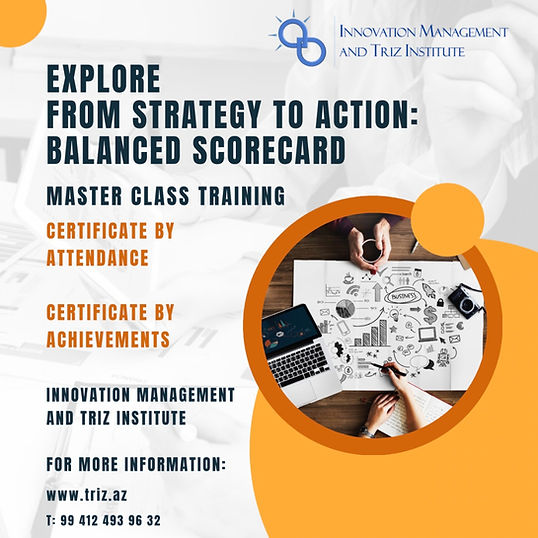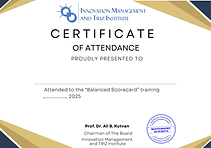
BALANCED SCORECARD TRAINING
The Balanced Scorecard concept was developed in 1992 by Harvard University professors Robert S. Kaplan and David P. Norton and revolutionized traditional performance measurement concepts. Traditional performance measurement methods based on accounting are now considered inadequate because they focus excessively on short-term perspectives and contain very general information.
The most fundamental characteristic of the Balanced Scorecard is that it creates and emphasizes the connection between corporate strategic objectives and performance measures. Furthermore, this method ensures balance between organizations' long-term and short-term decisions, and between their internal and external environments.
IMTI Balanced Scorecard Training Program
Our program is designed to provide participants with the knowledge and skills necessary to effectively implement and use the Balanced Scorecard System in their organizations. The Balanced Scorecard is a powerful tool designed to optimize strategic planning, execution, and performance management processes.
Proqram Objectives
-
To gain a deeper understanding of the fundamental concepts and principles of the Balanced Scorecard methodology
-
To learn how to effectively design and customize the Balanced Scorecard for your organization's unique needs and objectives.
-
Practical experience using our program to create, manage, and analyze Scorecards
-
To develop the skills necessary for implementing the Balanced Scorecard at all levels of your organization
and to create a roadmap for linking strategic objectives with daily operations
WHAT DOES THE TRAINING PROGRAM PROMISE PARTICIPANTS?
1. Interactive training sessions
Engaging and interactive lessons under the guidance of experienced trainers with extensive experience in the field of Balanced Scorecard implementation
2. Practical exercises
Practical exercises and case studies to reinforce knowledge and facilitate the practical application of concepts
3. Question and answer sessions
Participants have the opportunity to ask questions, exchange ideas, and participate in discussions with trainers.
4. Post-training support
Practical exercises and case studies to reinforce knowledge and facilitate the practical application of concepts.
5. Certificate
Official participation
certificate issued by IMTI
6. Diploma
Diploma for candidates who successfully pass the examination
7. Duration of training
5 days / 15 hours

.png)
